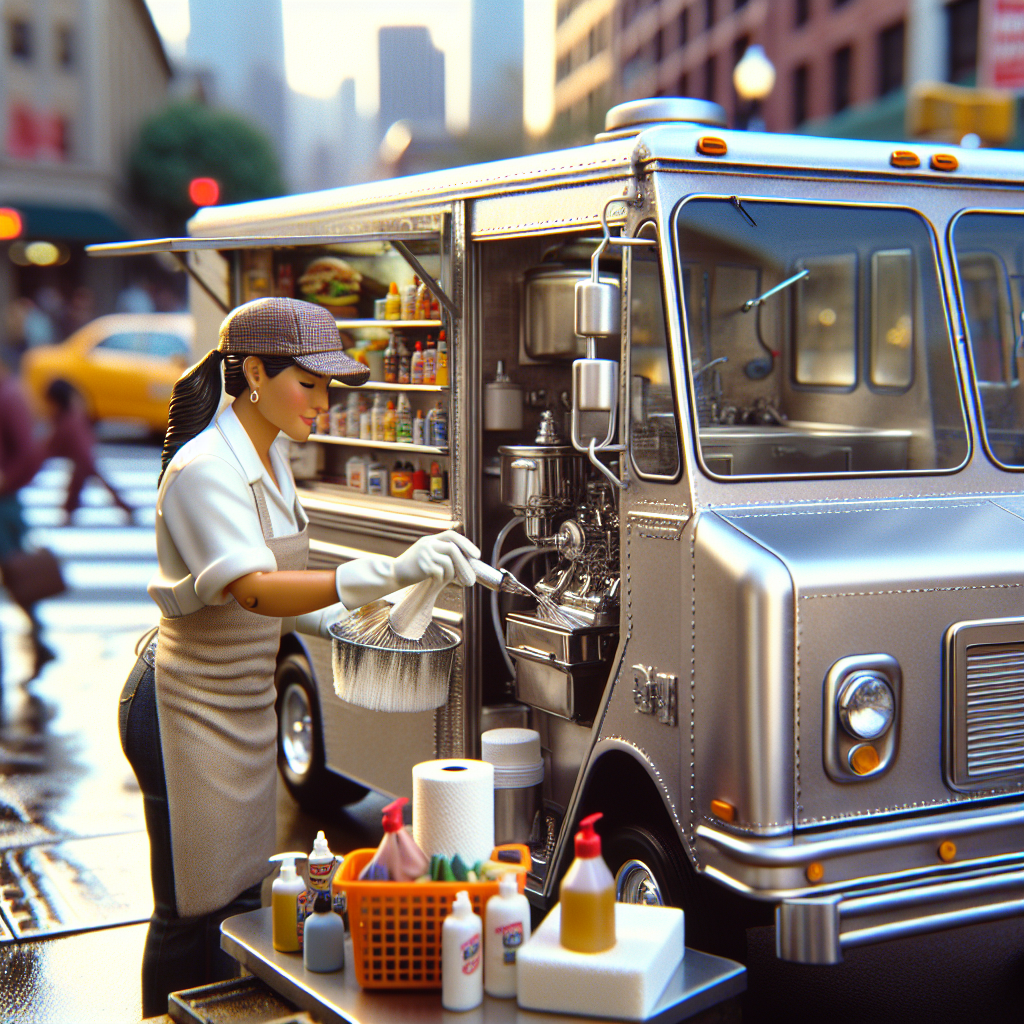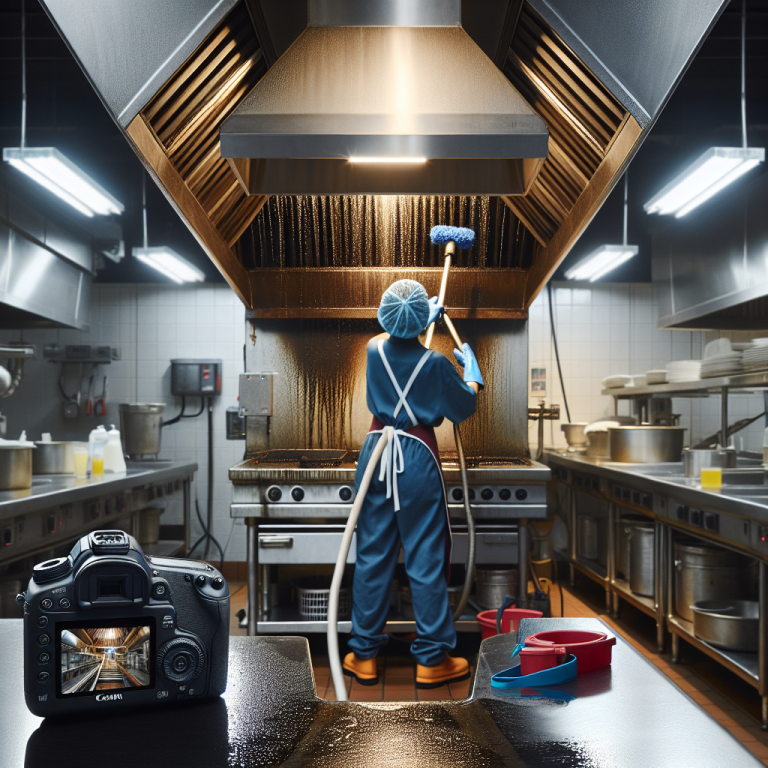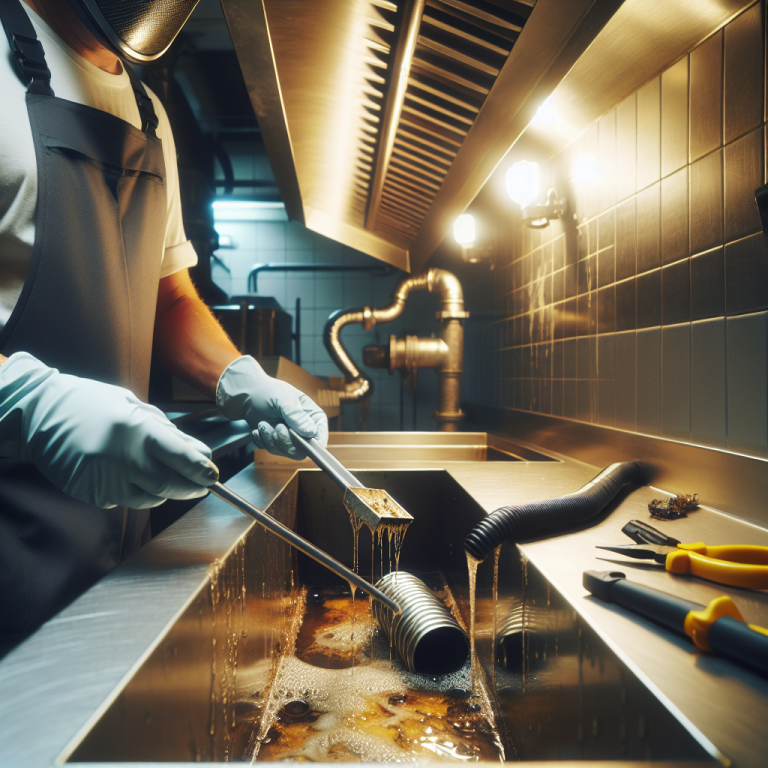Essential Hood Cleaning Tips for Successful Food Truck Operators
On the Road: Navigating Hood Cleaning for Food Trucks
Food trucks are the rock stars of culinary mobility, serving delectable delights on four wheels to eager customers at various locations. However, the daily grind of sizzling, smoking, and frying can lead to greasy exhaust hoods, which can impact not only the food you serve but also your kitchen’s safety. Understanding the unique challenges of hood cleaning in a food truck can be the difference between a thriving business and a grease-laden disaster.
Understanding the Importance of Hood Cleaning in Food Trucks
Every food establishment, whether a brick-and-mortar restaurant or a mobile unit, needs regular hood cleaning. The conundrum with food trucks is the confined space and the need for mobility, which presents unique challenges for thorough exhaust hood cleaning. The grease-laden vapors from cooking collect in the hood, ducts, and fans. If left untreated, these can lead to:
- Fire hazards: Grease buildup is highly flammable, which can lead to dangerous fire outbreaks.
- Poor air quality: An unclean hood can accumulate steam, smoke, and odors, making the interior uncomfortable.
- Decreased efficiency: Dirt-clogged systems can overwork the hood’s exhaust fans, leading to mechanical breakdowns.
Creating a Routine Cleaning Schedule
Unlike a stationary restaurant where hood cleaning can be scheduled without much disruption, food trucks require a meticulously planned cleaning schedule. Here’s how you can devise one:
- Sit down with your calendar: Determine your peak seasons and busiest days. Plan your hood cleaning when your truck is less active.
- Frequency matters: A good rule of thumb for restaurant hood cleaning is to clean the hood every month. Still, you might need more frequent cleaning depending on the volume of cooking.
- Track your cooking patterns: Not all foods generate the same amount of grease. If your menu heavily features fried or grilled foods, increase your cleaning frequency.
DIY or Hire a Professional?
When it comes to commercial kitchen hood cleaning, the decision between DIY and hiring professionals is the common fork in the road:
- DIY cleaning: This can save money. Basic cleaning after each workday should involve wiping down surfaces and washing filters. This can be effective for day-to-day maintenance.
- Professional Cleaning Services: Engage professionals like those from the Best Hood Cleaning Sacramento to handle in-depth cleaning. They come equipped with specialized tools to thoroughly clean the ductwork and internal hood components, minimizing fire risks and ensuring compliance with local health regulations.
Effective Cleaning Techniques and Tools
For those brave enough to tackle some aspects of hood cleaning on their own, here are some techniques and tools that can make the job easier:
- Degreasers: Use a heavy-duty degreaser designed for kitchen hoods. Ensure it is food-grade if you’re cleaning surfaces near food prep areas.
- Filter cleaning: Dish soap and hot water can effectively clean filters. Soak them thoroughly and use a brush if necessary.
- Power washing: If your hood’s design allows, power washing can remove accumulated grime more thoroughly than a cloth-wipe down.
- Razor Scrapers: For stubborn, baked-on grime, a razor scraper might be necessary. Always ensure it doesn’t damage the surface underneath.
Regulations and Safety Practices
Operating a food truck doesn’t exempt you from following safety and health regulations. Ensuring your truck complies with fire and health department standards involves:
- Regular inspections: Schedule inspections with the fire department to ensure your exhaust system is functioning correctly.
- Proper documentation: Maintain records of all hood cleaning activities. This includes both in-house cleaning logs and professional service invoices. This documentation is often required for health inspections.
- Training for staff: Everyone on your team should understand basic hood cleaning practices and the importance of keeping the kitchen exhaust system clean.
Conclusion: A Clean Hood Is a Happy Hood
The challenge of maintaining food trucks extends beyond just having the best recipe; it involves keeping the truck running smoothly with regular and thorough commercial kitchen hood cleaning. Clean hoods mean safer cooking environments, better air quality, and compliance with health regulations, all contributing to the seamless operation of your culinary enterprise.
By implementing a strategic cleaning schedule and understanding when to employ professional services, food truck operators can rest easy knowing that their mobile kitchen remains a safe haven for their culinary creations.







